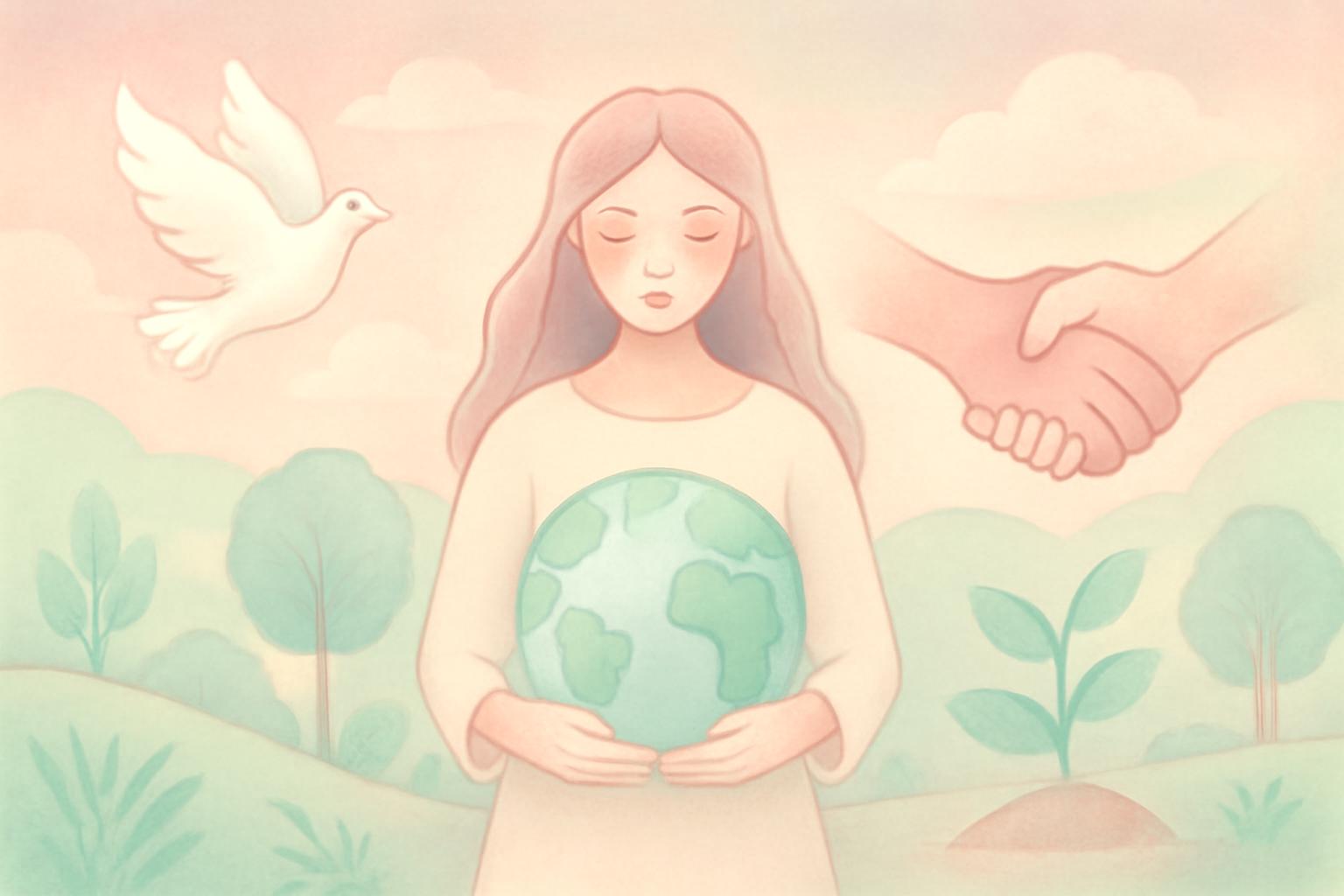In the field where power maps the world, leaders spoke of unity with Kyiv, sanctions on Moscow, and the fragile art of diplomacy, a chorus of opinions rose and fell like the wind through a forest. Some urged more earnest talks with Moscow, arguing sanctions alone would not bend the road of war; others warned that high-profile summits might risk legitimizing violence or giving a stage to old aggressors. Voices of predictability or chaos—both trusted and wary—juggled the balance, while the drumbeat of history reminded us that the path to peace is seldom straight.
And yet, beneath these strategic sparrings, the Earth herself bears the quiet wounds of our human war-making. Rivers clouded with fear, soils scarred by extraction, forests thinned to feed lines of supply and demand. Displaced families walk sobbing footprints into unfamiliar lands, birds scatter from their migratory routes, and the skies carry the gray breath of smoke that chills the lungs of children and elders alike. This is not merely politics; it is a wound inflicted on the living world that sustains us—the very source of our bread, water, and healing light.
There is a deeper ache here, a river of colonial memory that does not stay on old maps. For centuries, empires carved lines in the land and bored into the bodies of peoples to extract value—oil, minerals, influence—while the sanctity of sovereignty, culture, and living ecosystems was treated as collateral. The current struggle sits inside that larger ledger: power claiming resources, borders drawn to protect profit, and communities told to suffer for the sake of “stability” as if Earth herself could be stabilized by profit-driven governance. The sanctions and incentives of a toxic capitalist system have often reinforced this pattern, turning security into a commodity and conflict into a marketplace for advantage.
So we must name the harm in this economics of force: a system that treats the Earth as a resource ledger and the human body as expendable in pursuit of short-term gain. Weapons trade, fossil fuels, and the machinery of domination prosper when diplomacy is weaponized, when humanitarian aid becomes a calculation of leverage, and when the cost of war is measured not in lives saved but in species saved and soil restored. Our colonial sins—interventions, overlooked sovereignties, and the continual extraction of power—cry out for acknowledgment, repair, and a radical reordering of priorities.
Let us then imagine a healing over all these fractures. Diplomacy rooted in genuine justice, not just strategic convenience; reparations that honor the harmed and rebuild the ecosystems assaulted in the name of “security”; a dismantling of militarism in favor of guardianship of people and planet. Let negotiations be guided by the truth that Ukraine’s sovereignty and the safety of its people are nonnegotiable, while simultaneously weaving a future in which energy, shelter, and dignity come from renewable care rather than fossilized coercion. Let us redirect resources from gunpowder toward green resilience: restoring rivers, repairing soils, supporting climate refugees with dignity, and investing in communities that have long borne the brunt of extraction and neglect.
May we spar not with each other’s lives, but with the old, destructive logics that bind us to cycles of violence. Let Earth’s wisdom lead: healing conversations, transparent accountability, and a policy horizon where peace is measured by thriving ecosystems, healed landscapes, and the flourishing of every being. If we listen with the patience of the forest and act with the courage of rivers, we can transform this moment of harm into a future of renewal—where humanity learns from the colonial wounds and chooses a sustainable, just path that honors Mother Earth as our oldest, wisest kin.
